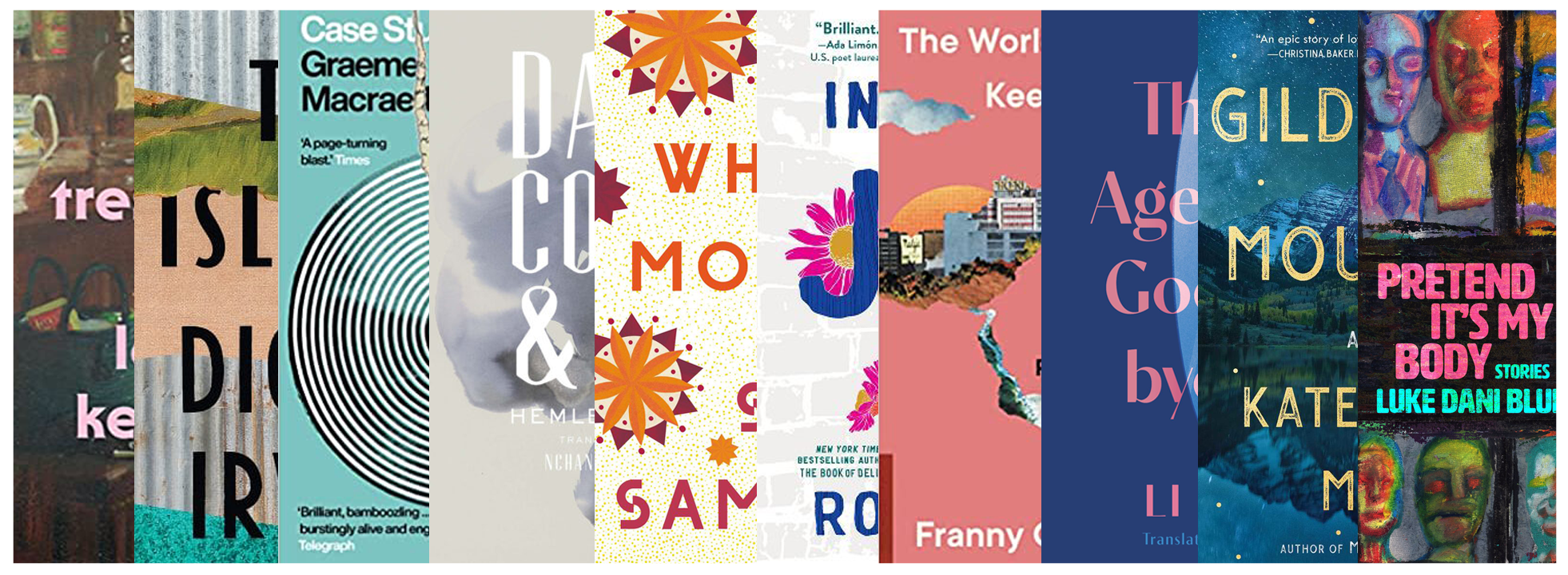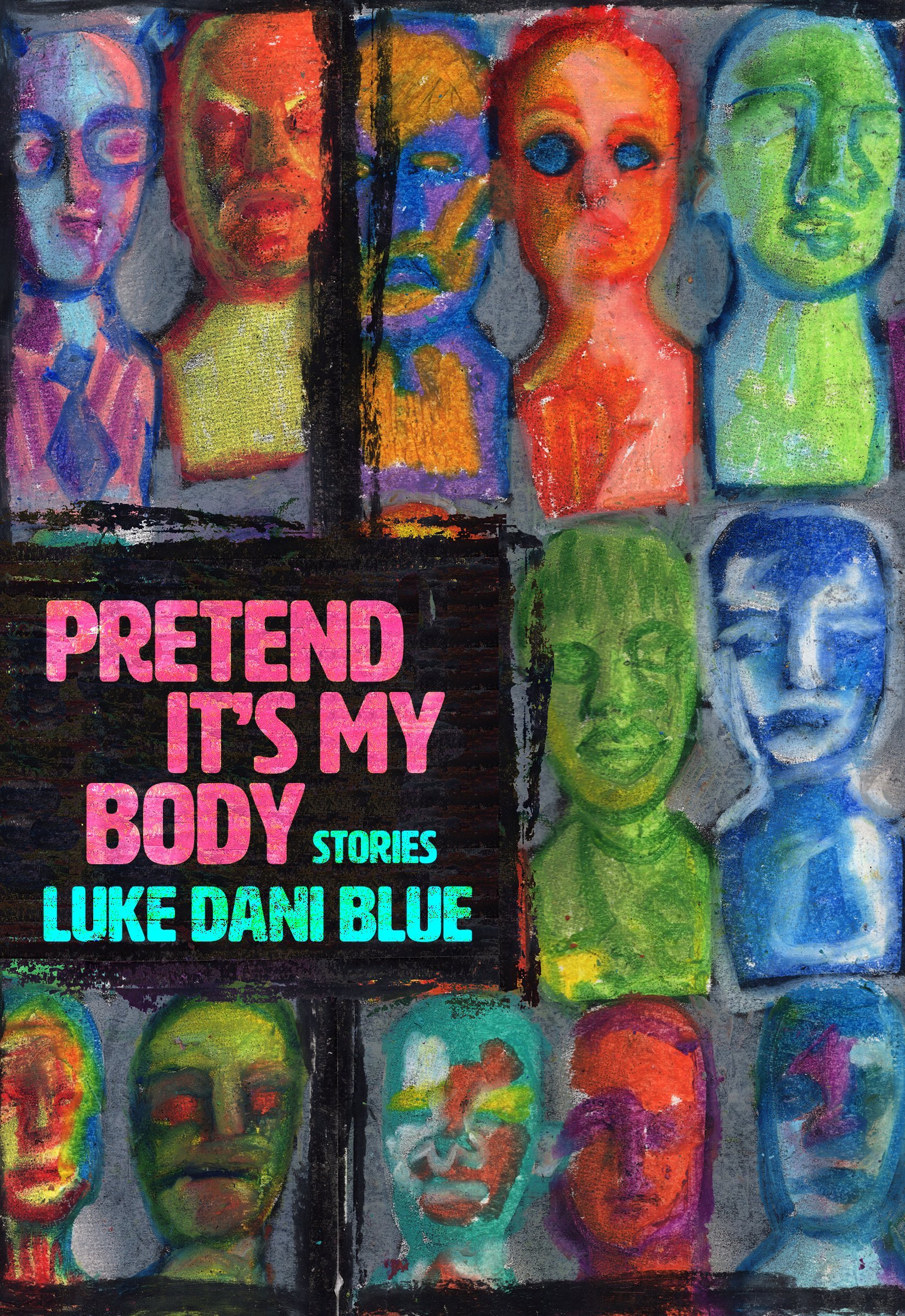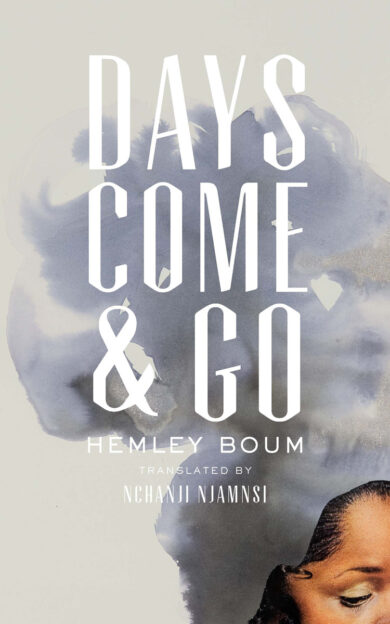FP Staff List: New in November
We’re publishing two incredible new books this month— Luke Dani Blue’s PRETEND IT’S MY BODY and Li Zi Shu’s THE AGE OF GOODBYES (trans. by YZ Chin). To celebrate all the fantastic releases this month, we’ve rounded up a list of the news books we can’t WAIT to get our hands on. We highly recommend grabbing one (or more!) of these new reads.
THE AGE OF GOODBYES
by Li Zi Shu, trans. by YZ Chin
“In 1969, in the wake of Malaysia's deadliest race riots, a woman named Du Li An secures her place in society by marrying a gangster. In a parallel narrative, a critic known only as The Fourth Person explores the work of a writer also named Du Li An. And a third storyline is in the second person; “you” are reading a novel titled The Age of Goodbyes. Floundering in the wake of “your” mother’s death, “you” are trying to unpack the secrets surrounding “your” lineage.
The Age of Goodbyes—which begins on page 513, a reference to the riots of May 13, 1969—is the acclaimed debut by Li Zi Shu, one of Southeast Asia’s most exciting writers. The winner of multiple awards and a Taiwanese bestseller, this dazzling novel is a profound exploration of what happens to personal memory when official accounts of history distort and render it taboo.”
PRETEND IT’S MY BODY
by Luke Dani Blue
“Informed by the author’s experience in and between genders, this debut story collection blurs fantasy and reality, excavating new meanings from our varied dysphorias.
Misfit mothers, prodigal "undaughters," con artists, and middle-aged runaways populate these ten short stories that blur the lives we wish for with the ones we actually lead. A tornado survivor grapples with a new identity, a trans teen psychic can read only indecisive minds, and a woman informs her family of her plans to upload her consciousness and abandon her body.
Luke Dani Blue invites the reader into a world of outlier lives made central and magical thinking made real. Surreal, darkly humorous, and always deeply felt, Pretend It’s My Body is bound together by the act of searching—for a spark of recognition and a story of one's own.”
DAYS COME AND GO
by Hemley Boum, trans. by Nchanji Njamnsi (Two Line Press)
“Chronicling the beauty and turmoil of a rapidly changing Cameroon, Days Come and Go is the remarkable story of three generations of women both within and beyond its borders. Through the voices of Anna, a matriarch living out her final days in Paris; Abi, Anna’s thoroughly European daughter (at least in her mother’s eyes); and Tina, a teenager who comes under the sway of a militant terrorist faction, Boum’s epic is generous and all-seeing. Brilliantly considering the many issues that dominate her characters’ lives—love and politics, tradition and modernity—Days Come and Go, in Nchanji Njamnsi’s vivid translation, is a page-turner by way of Frantz Fanon and V. S. Naipaul.”
THE ISLANDS
by Dionne Irving (Catapult)
“The Islands follows the lives of Jamaican women--immigrants or the descendants of immigrants--who have relocated all over the world to escape the ghosts of colonialism on what they call the Island. Set in the United States, Jamaica, and Europe, these international stories examine the lives of an uncertain and unsettled cast of characters. In one story, a woman and her husband impulsively leave San Francisco and move to Florida with wild dreams of American reinvention only to unearth the cracks in their marriage. In another, the only Jamaican mother--who is also a touring comedienne--at a prep school feels pressure to volunteer in the school's International Day. Meanwhile, in a third story, a travel writer finally connects with the mother who once abandoned her.
Set in locations and times ranging from 1950s London to 1960s Panama to modern-day New Jersey, Dionne Irving reveals the intricacies of immigration and assimilation in this debut, establishing a new and unforgettable voice in Caribbean-American literature. Restless, displaced, and disconnected, these characters try to ground themselves--to grow where they find themselves planted--in a world in which the tension between what's said and unsaid can bend the soul.”
GILDED MOUNTAIN
by Kate Manning (Scribner)
“In a voice spiked with sly humor, Sylvie Pelletier recounts leaving her family’s snowbound mountain cabin to work in a manor house for the Padgetts, owners of the marble-mining company that employs her father and dominates the town. Sharp-eyed Sylvie is awed by the luxury around her; fascinated by her employer, the charming ‘Countess’ Inge, and confused by the erratic affections of Jasper, the bookish heir to the family fortune. Her fairy-tale ideas of romance take a dark turn when she realizes the Padgetts’ lofty philosophical talk is at odds with the unfair labor practices that have enriched them. Their servants, the Gradys, formerly enslaved people, have long known this to be true and are making plans to form a utopian community on the Colorado prairie.
Outside the manor walls, the town of Moonstone is roiling with discontent. A handsome union organizer, along with labor leader Mary Harris ‘Mother’ Jones, is stirring up the quarry workers. The editor of the local newspaper—a bold woman who takes Sylvie on as an apprentice—is publishing unflattering accounts of the Padgett Company. Sylvie navigates vastly different worlds and struggles to find her way amid conflicting loyalties. When the harsh winter brings tragedy, Sylvie must choose between silence and revenge.
Drawn from true stories of Colorado history, Gilded Mountain is a tale of a bygone American West seized by robber barons and settled by immigrants, and is a story infused with longing—for self-expression and equality, freedom and adventure.”
THE WHITE MOSQUE
by Sofia Samatar (Catapult)
“In the late nineteenth century, a group of German-speaking Mennonites traveled from Russia into Central Asia, where their charismatic leader predicted Christ would return.
Over a century later, Sofia Samatar joins a tour following their path, fascinated not by the hardships of their journey, but by its aftermath: the establishment of a small Christian village in the Muslim Khanate of Khiva. Named Ak Metchet, “The White Mosque,” after the Mennonites’ whitewashed church, the village lasted for fifty years.
In pursuit of this curious history, Samatar discovers a variety of characters whose lives intersect around the ancient Silk Road, from a fifteenth-century astronomer-king, to an intrepid Swiss woman traveler of the 1930s, to the first Uzbek photographer, and explores such topics as Central Asian cinema, Mennonite martyrs, and Samatar’s own complex upbringing as the daughter of a Swiss-Mennonite and a Somali-Muslim, raised as a Mennonite of color in America.
A secular pilgrimage to a lost village and a near-forgotten history, The White Mosque traces the porous and ever-expanding borders of identity, asking: How do we enter the stories of others? And how, out of the tissue of life, with its weird incidents, buried archives, and startling connections, does a person construct a self?”
TRESPASSES
by Louise Kennedy (Riverhead Books)
“Set in Northern Ireland during the Troubles, a shattering novel about a young woman caught between allegiance to community and a dangerous passion.
Amid daily reports of violence, Cushla lives a quiet life with her mother in a small town near Belfast. By day she teaches at a parochial school; at night she fills in at her family’s pub. There she meets Michael Agnew, a barrister who’s made a name for himself defending IRA members. Against her better judgment – Michael is not only Protestant but older, and married – Cushla lets herself get drawn in by him and his sophisticated world, and an affair ignites. Then the father of a student is savagely beaten, setting in motion a chain reaction that will threaten everything, and everyone, Cushla most wants to protect.
As tender as it is unflinching, Trespasses is a heart-pounding, heart-rending drama of thwarted love and irreconcilable loyalties, in a place what you come from seems to count more than what you do, or whom you cherish.”
CASE STUDY
by Graeme Macrae Burnet (Biblioasis)
“London, 1965. 'I have decided to write down everything that happens, because I feel, I suppose, I may be putting myself in danger, ' writes an anonymous patient, a young woman investigating her sister's suicide. In the guise of a dynamic and troubled alter-ego named Rebecca Smyth, she makes an appointment with the notorious and roughly charismatic psychotherapist Collins Braithwaite, whom she believes is responsible for her sister's death. But in this world of beguilement and bamboozlement, neither she nor we can be certain of anything.
Case Study is a novel as slippery as it is riveting, as playful as it is sinister, a meditation on truth, sanity, and the instability of identity by one of the most inventive novelists of our time.”
THE WORLD KEEPS ENDING, AND THE WORLD GOES ON
by Franny Choi (Ecco)
“Many have called our time dystopian. But The World Keeps Ending, and the World Goes On reminds us that apocalypse has already come in myriad ways for marginalized peoples.
With lyric and tonal dexterity, these poems spin backwards and forwards in time--from Korean comfort women during World War II, to the precipice of climate crisis, to children wandering a museum in the future. These poems explore narrative distances and queer linearity, investigating on microscopic scales before soaring towards the universal. As she wrestles with the daily griefs and distances of this apocalyptic world, Choi also imagines what togetherness--between Black and Asian and other marginalized communities, between living organisms, between children of calamity and conquest--could look like. Bringing together Choi's signature speculative imagination with even greater musicality than her previous work, The World Keeps Ending, and the World Goes On ultimately charts new paths toward hope in the aftermaths, and visions for our collective survival.”
INCITING JOY
by Ross Gay (Algonquin Books)
“In these gorgeously written and timely pieces, prize-winning poet and author Ross Gay considers the joy we incite when we care for each other, especially during life's inevitable hardships. Throughout Inciting Joy, he explores how we can practice recognizing that connection, and also, crucially, how we expand it.
In "We Kin" he thinks about the garden (especially around August, when the zucchini and tomatoes come on) as a laboratory of mutual aid; in "Share Your Bucket" he explores skateboarding's reclamation of public space; he considers the costs of masculinity in "Grief Suite"; and in "Through My Tears I Saw," he recognizes what was healed in caring for his father as he was dying.
In an era when divisive voices take up so much air space, Inciting Joy offers a vital alternative: What might be possible if we turn our attention to what brings us together, to what we love? Full of energy, curiosity, and compassion, Inciting Joy is essential reading from one of our most brilliant writers.”











